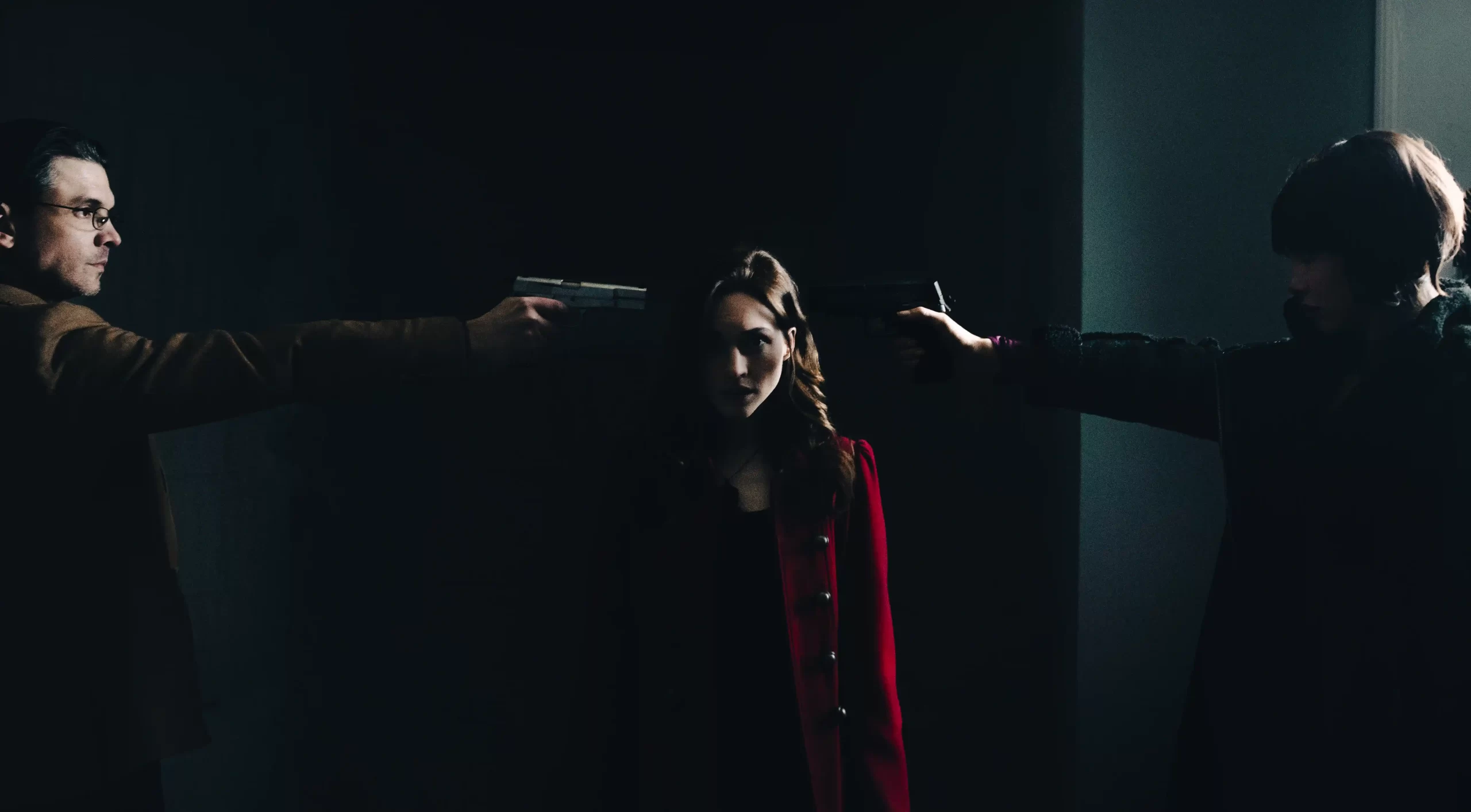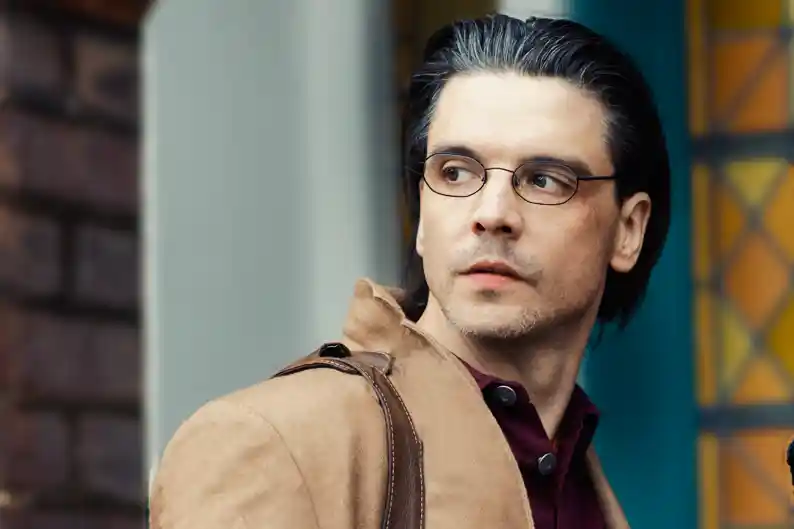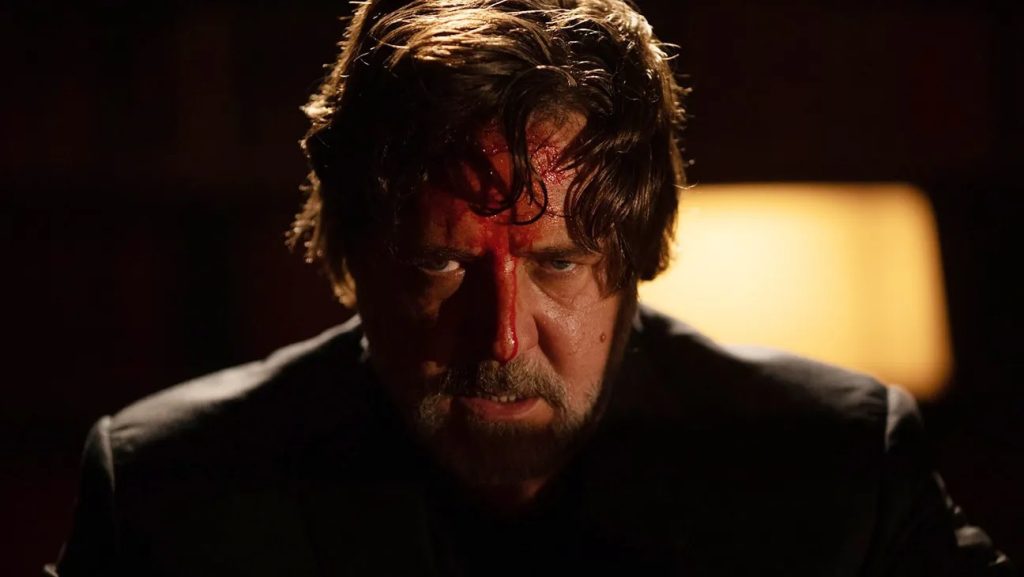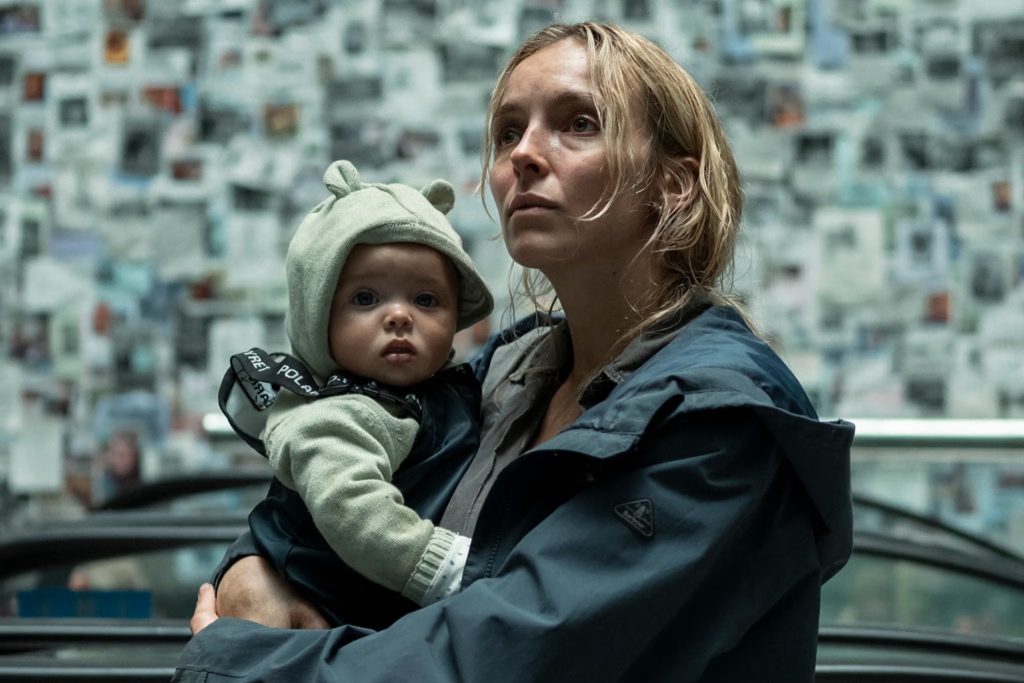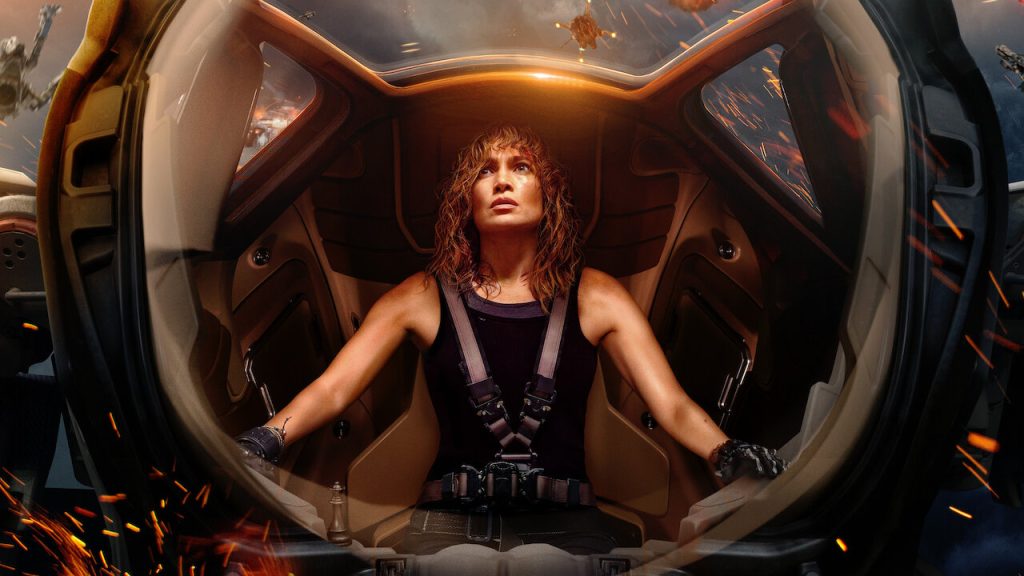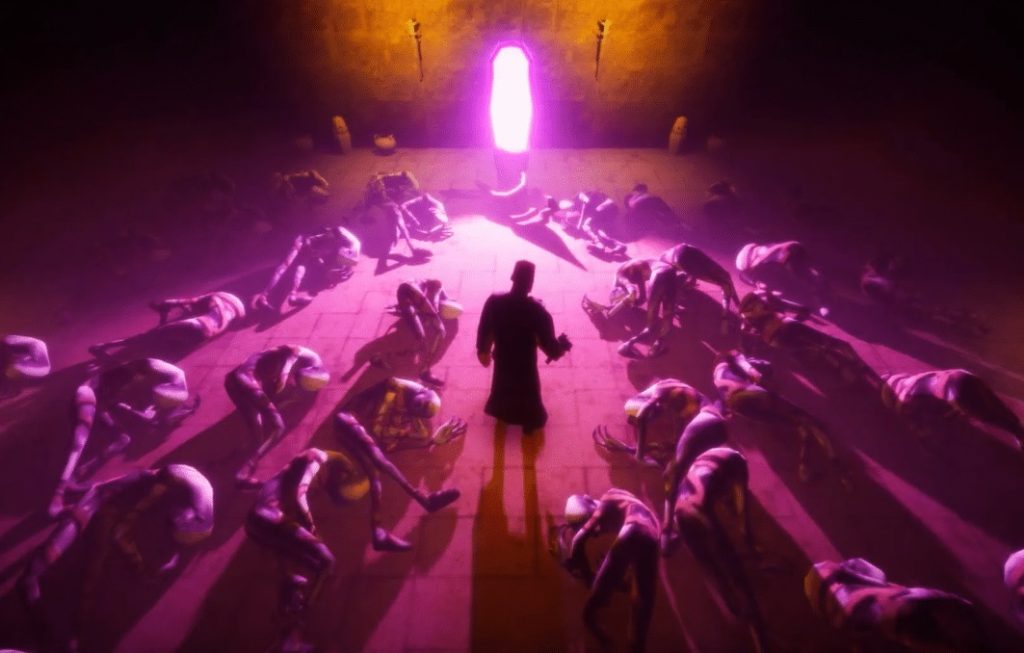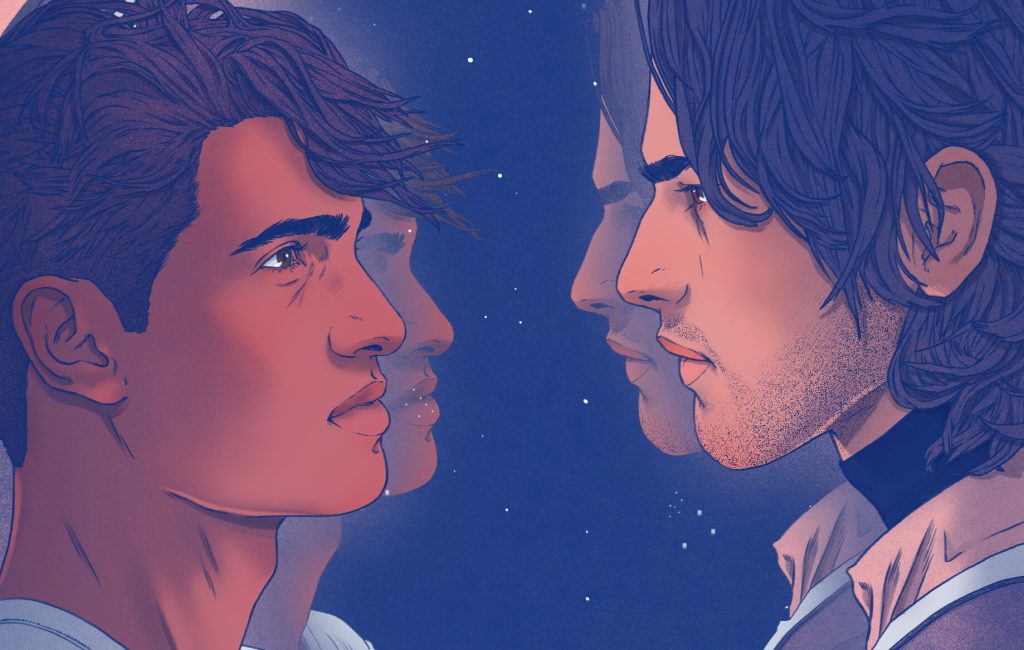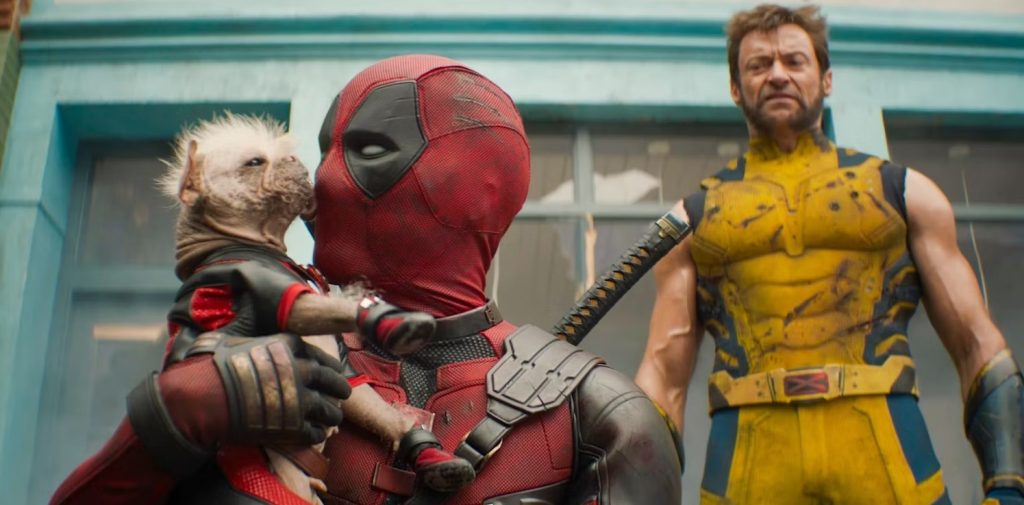Much-loved actor Andrew Lee Potts – best known for Primeval and the recent action film 400 Bullets – has stepped behind the camera for Firecracker. The film, set on Bonfire Night, follows a pair of hardened criminals who take an estate agent hostage while attempting to find an important piece of evidence against their boss. We caught up with the always-busy star to chat about his feature directorial debut…
STARBURST: Congratulations on the film; how do you feel now it’s been released?
Andrew Lee Potts: I’m proud of the whole film, obviously, being my first film and stuff. I know it sounds cheesy, but I really wanted to tell a story that was interesting enough to keep people’s attention, with enough action. There’s a tiny peppering of humour in there, but I was very cautious not to do that too much, you know, especially with what people know from me. I know this sounds ridiculous, but it’s really funny that I’ve just remembered that I’m in it, if you know what I mean. When Vertical did the poster and sent it over, I thought, ‘oh god, that’s me! I was so focused on the directing side of it, getting it across the line, and delivering it. That’s been my main thing. It was the same on set. Because it was such a small budget and was such a tiny crew of people mostly helping me out. I’m so unbelievably grateful for the friends I’ve made over the years. I guess they have the belief in me and want to support and help me take that next step, really. But yeah, I’m proud of it.
How did the story come about?
I had bought a new house, so this big house I was renting would be empty for a month because I couldn’t get out of my contract. So I had an empty big house, and literally, that’s how it came about. I thought, ‘what can I do with space?’ You know, I’m an opportunist! How can I contain the story in this house and use every area of it in an entertaining way? I always wanted to make a film by the time I was 40 – that was my goal. But around that time, obviously, COVID hit, so that kind of scuppered my plans a little bit. So I had to have a rethink. People around me were always going you should do it. Just do it. Just do it. And I thought, you know what, I’m going to do it. Once I had that idea in my head, I wouldn’t stop for anything. And believe me, things tried to stop me! I talked to other filmmakers, and they’d say you can’t do it for the budget. I was like, “Watch me”. I that’s what I think I’m the most proud of; that I actually I saw it through from start to finish.
There’s something that happens to me when I start directing onset and step into that role that seems right for me. I seem totally at home. I may be stressed and maybe worried about certain things, like how we are going to pull things off, but my focus doesn’t falter. I have to look at that and take confidence in that, knowing that I will see something through. Hopefully I have that kind of aura around me, like ‘it’s going to be okay, we’ll push through this. Will you trust me? I will make it work’. And you know, everyone on the film said yes, they do. And now I get to go, ‘I’m glad you did because here it is’. Vertical picking it up was just phenomenal. They are such a big distribution company in America, and picking up my little British independent film – my very first feature – was just nuts! I didn’t even have to take it festivals; I didn’t have to try and slug it. They saw it, and they really liked it.
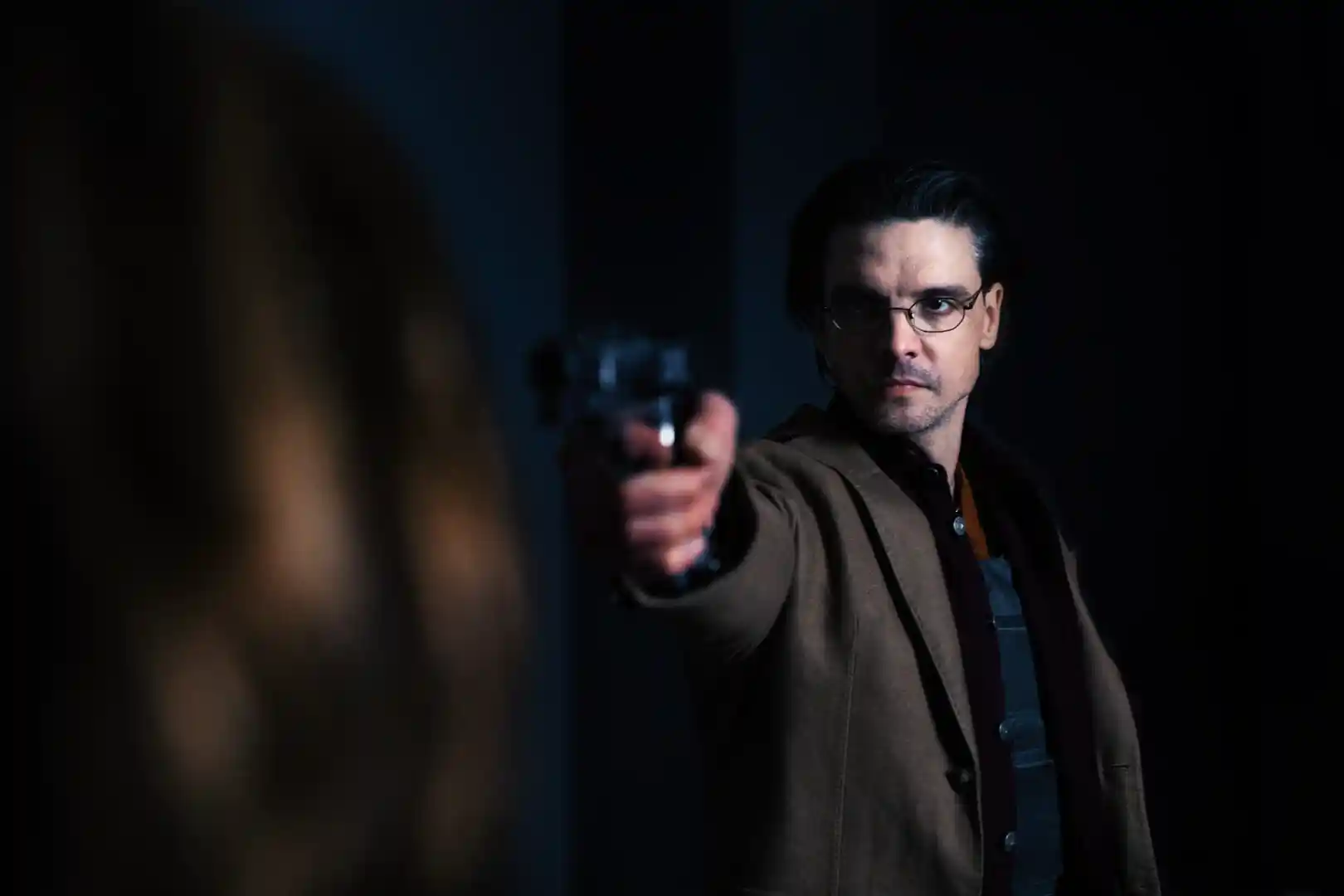
Your character’s quite a nasty piece of work, but as a viewer, you end up liking him…
That was so important. I worked so hard with Katie [Sheridan] and Eloise [Lovell Anderson], thinking about how we would come towards the role. I just need it to be authentic. Through my acting over the years, I’ve played many baddies, I’ve played many goodies. But one thing I think I’ve always strived to do is to have some sort of audience connection with that character. Whether it’s through vulnerability and their flaws. There’s something within these people. You might not understand their decision-making or why they’re doing that, or think, ‘I would never do that, but I kind of feel for that dude in that situation. I can see why he’s convinced himself it’s the right thing to do’. That empathy from an audience is so important when you’re telling a story. I’ve seen so many films where they’re all bells and whistles and it looks fantastic and sounds amazing, and it’s technically flawless, but I don’t connect. That’s why I want to make films I do. I’m honing in on my way of telling a story and my style. Firecracker has really helped me to do that.
What was the transition from directing shorts to a full feature?
In my head, I thought, ‘I’ve done a 20-minute short, so it’s just like doing a bunch of those back-to-back’. It’s not at all! It was a whole different ballgame. But I loved it. Editing that much material was epic. The technical stuff that I learned on this was insane. It was a baptism by fire for me. There was there was a lot of stuff that I had to learn. There was a lot of checking YouTube on how I do stuff! [Laughs]
I do need to say how grateful I am to every single person who helped me make Firecracker become what it is. I really couldn’t have done any of it without them. It was their belief in me as a filmmaker and their belief in my vision that got me through it. When I was doubting myself, they reminded me that I can do this and I will do this. I want to make the best story I can with the resources I have. But obviously, those resources were small. But can you imagine if that pot was a bit bigger and resources were bigger? That bit excites me about what I might be capable of in the future.
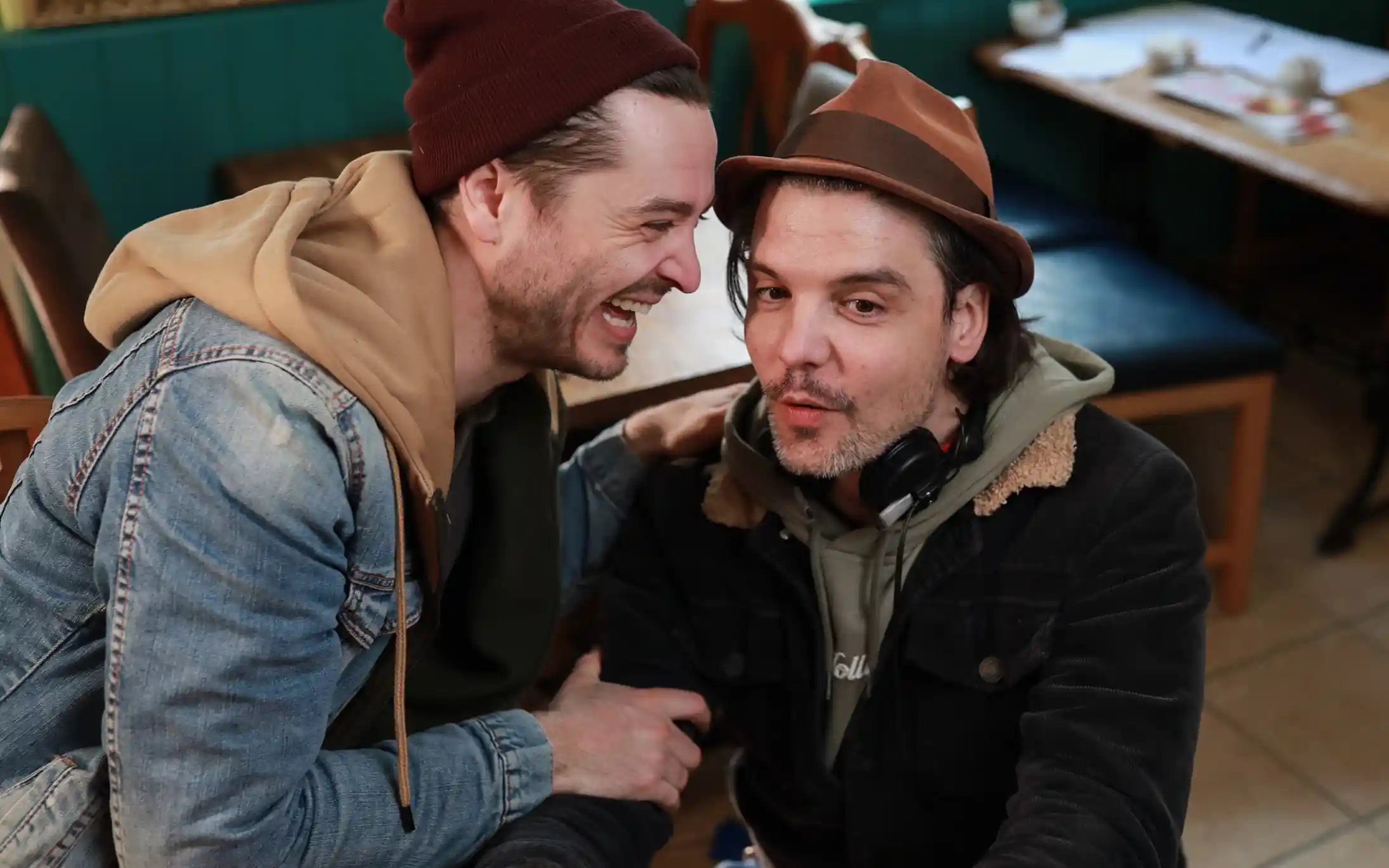
We all do it! We guess you were almost edited in your head as you were filming?
Kind of, yeah. I know when I’ve got something; I know when I’ve got enough of something. So if someone’s done a performance and I know I’ve got this bit from that take, this bit from that take. Saying that we didn’t have the luxury of having loads of takes. We had to snap through this at pace, so I had to be uber-decisive. Luckily, I think that’s one of my strengths. And that really comes into play with filmmaking because I can go, “Okay, we’ve got that move on”. I also don’t have to be precious about anything. It’s a collaborative thing on set, if someone comes up with a suggestion that’s better than what I was thinking about, I’m like, “let’s do that”.
Did you have specific people in mind for characters when you were writing?
Yeah, Jason Flemying and Nick Moran were completely who I wanted. Obviously, I’m a lot closer to Jason because of Primeval and stuff; we’ve been in and out of each other’s lives for years. We did a movie together when I was 18 or something and I’ve got such a soft spot for him, he’s such a gentle, kind man and is so good on screen. He looks brilliant, and he’s such a pleasure to work with. The tricky thing with Jason was getting him in the room. He wanted to do it, but he’s just super busy. Once we worked that out, he came and was a superstar. I’ve known Nick for ages and have also done a bunch of jobs with him and he was exactly in my head is The Connect. So when he said he’d do it, I was super chuffed. really works. Also with Alex Vlahos, we come from similar backgrounds; we were both younger actors, and we both did a sci-fi show, he was in Merlin. We’d meet at comic cons over the years but never worked together. I needed someone who could make such a big impact in such a small space of time in the film for you to feel for him, and he’s got that versatility I needed.
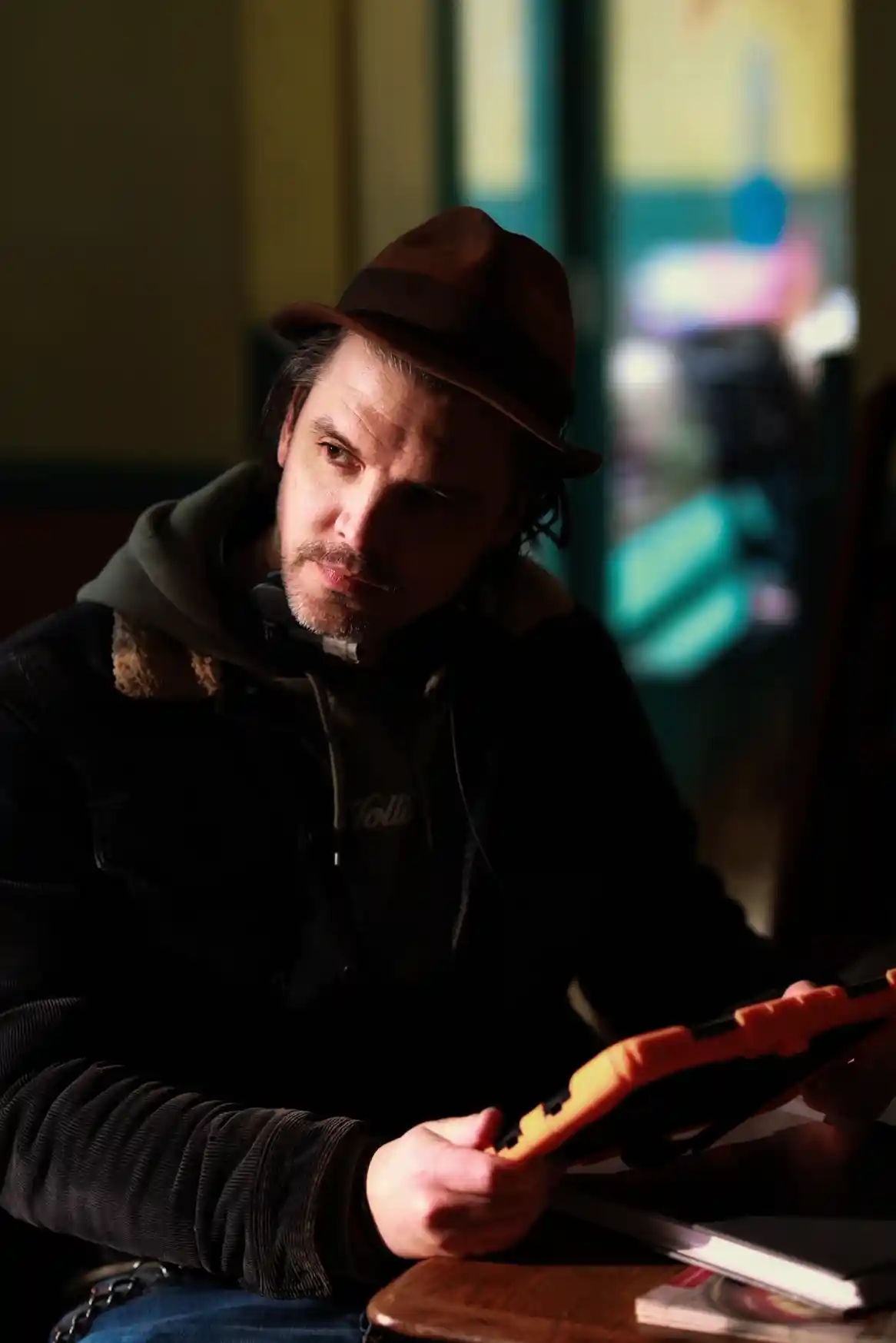
Did you film it around Bonfire Night?
No! Those shots weren’t even B-roll. Luckily enough, Katie’s brother is a visual effects artist. He’s super busy, working on huge stuff. But I obviously managed to talk to him. There’s a shot in the film where Lena [Eloise Lovell Anderson] looks up, and there are all the fireworks in the sky, and it pans down to her – that was in my head from the beginning. And I was lucky enough to have Robert in the family kind of to pull that off for me because I think that makes a massive difference. Like I say, it was literally me pulling every thread that I knew to try and pull this off!
What was the hardest part of the production?
With any independent filmmaker, you’re going to come up against it. Loads of things were going wrong on set. It wasn’t going well with technical stuff. It looked like we were going to lose two days of filming, but we shot it in nine days, which is insane. I remember a moment in the bedroom where we were filming, I was talking to two of the actors and so unbelievably stressed thinking, ‘how are we going to even finish this? Am I in above my head?’ My partner Katie, who’s also in the film and is amazing, took a picture of me and above my head is a sign on my wall and it says don’t give up. It was blood, sweat, and tears 100% with this. I was wearing so many different hats that I just thought I was going loopy sometimes.
There are so many different stages. Getting a bit of money together at the start to try and get it on its feet. That was difficult. Getting the people to have the belief in you to push forward that you can actually do it. That was difficult, you know? The filming schedule was insane. I’d never scheduled anything on that scale before. Dealing with the actors, dealing with their travel arrangements and all that kind of stuff. I was pretty much doing everything, and so that was difficult in itself, and then you get on set, and then suddenly I’m thinking about a million things. Jason Flemyng said to me – because he’s directed a movie – it’s like being pecked to death by 1000 chickens. Everybody has questions for you. Your head’s all over the place. And then I call action, and I step onto set as an actor, and I have to try to forget all that. Then I’m in a scene with somebody and I’m also thinking about the direction, her reactions, and whether that’s a good take or whether we want to go over that bit again. My brain had to go in so many different channels all the time. That bit was difficult. But I like a challenge. It’s been two years of my life, obviously working as an actor at the same time, but constantly doing this. I think I live for the challenge, really. So I think as much as I might moan about it and go, ‘this is mental, I’m not doing this again’, it starts to come out, and you start to get the feedback, and then you start to go “Okay, cool. What are we doing next?”
So what are you doing next?
Divided is in development now. I won’t say what stage it’s at, but it’s coming together. It’s a heist film set in 2045, so the not-too-distant future. It’s an ensemble cast, which I love. It’s kind of a Guy Ritchie high jinks mixed with Black Mirror. It’s got more of the actor that people might enjoy me being, you know, the sarcasm, the British humour, and the stuff that I got known for. There’s more of that in Divided. Half the characters are like that, and half of the characters are more serious. It mixes really well. I’m super proud the script. We’ve got a full cast attached already, just off the back of the script. So yeah, it’s exciting times. In my head, I’m like, ‘why am I doing it again?’ I’m addicted to filmmaking, obviously! I like telling the story; then, you put your baby out there to be judged. When I started doing short films, they were really small and just for me, just to prove to myself that I could do it. That’s why I started. I wanted to play the drums at 12 years old, so I sat in the drum room every lunchtime and break at school and taught myself how to play the drums, because I’ve got an idea in my head and I wanted to do it. Then a year later, they came to my high school looking for an actor who could play the drums for a show called Children’s Ward. And I was like, “I can play the drums”. So there have been a lot of those kinds of weird twists in my life that have kind of led me on a path forward. So, let’s see where Firecracker takes me!
FIRECRACKER is out now to buy or rent on digital platforms, including Amazon, Sky Store, YouTube, and Apple TV. You can read our review here.
